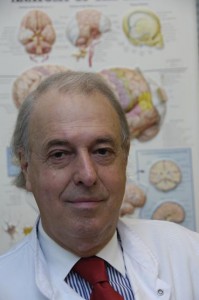The national Medical Specialist Associations in Europe are represented at the European level by the European Union of Medical Specialists (UEMS). To harmonise and improve the quality of Continuing Medical Education (CME) UEMS delegated the task of accreditation to UEMS – EACCME. EACCME established uniform CME credits that can be exchanged between European countries and the various Medical Specialties. The rules for awarding European CME credits are simple. One hour of CME yields one credit with a maximum of 3 credits for half a day and 6 credits for a full day of CME activities.
In order to ensure a flexible cooperation EACCME signed mutual agreements with almost all Medical Specialties as well as many but not all National Accreditation Authorities. Among the countries without such an agreement are France, Germany and the Netherlands. The importance of an agreement with EACCME is that European CME credits are automatically recognized by the National Accreditation Bodies. Also in 2000 an agreement was signed between UEMS-EACCME and the American Medical Association (AMA) to recognise each other’s CME credits.
The first step towards European Accreditation is always an application for accreditation in the country where the event will take place. Next the application is entered in the EACCME web-based application system. If the application is formally correct, it is sent to the European Board of Neurology (EBN), the UEMS section for Neurology, for assessment of the scientific content of the meeting. This is done by a small committee that permits its 4 members to acquire much experience, ensuring a high level uniform evaluation. An important aspect of their work is to rule out as much as possible commercial influence. Therefore satellite symposia never receive accreditation, the person responsible for the meeting should always be a medical specialist (neurologist) without commercial ties and the content should be relevant for neurologists. Finally the committee members determine the number of credits.
So far only life events were discussed. In 2009 UEMS introduced the possibility of accrediting e-learning materials after having established an extensive set of rules for this activity. Accreditation of a comprehensive e-learning program requires much time and expertise. It was decided to give this task to designated EACCME assessors who receive payment for their work. Unfortunately development in this field has been slow due to practical difficulties.
To receive EACCME accreditation for repeated e-learning activities like the questions on the monthly CME papers in our European Journal of Neurology is even more difficult. To fill in each month an extensive application form for 5 questions on one paper is practically impossible. The solution would be Provider Accreditation that EACCME is currently exploring. It could mean that CME materials from a trusted provider are more or less automatically accredited.
For all the EFNS e-learning CME activities, among which e-Brain, it is recommended that UEMS-EACCME increases its efforts to realize the above named possibilities. Because one of the best stimuli for participating in CME activities is the awarding of European Credits that are also recognized by the National Accreditation Authorities.
Professor Joseph Th J Tans from the Netherlands, Past Chairperson of the EFNS Subcommittee on CME





1 comment
With the advanced technology we’re using in the world of medical practice, we are now need to learn more knowledge with the rest of our medical practitioners that they can contribute e-learning really place a vital role in our lives. We needed additional education for us to know developments for today’s technology. I’ve search an CME programs that would help us like with http://www.cme-internalmedicine.com/ it really helps in many ways from their programs and materials for learning.